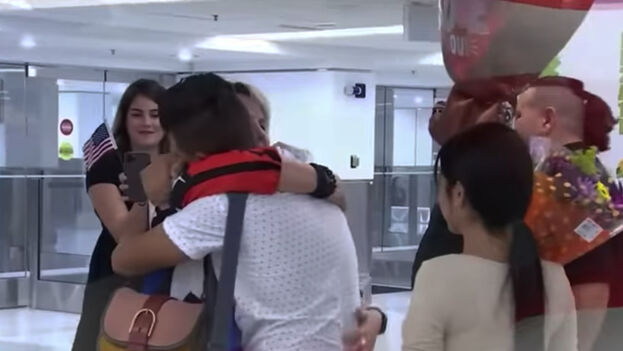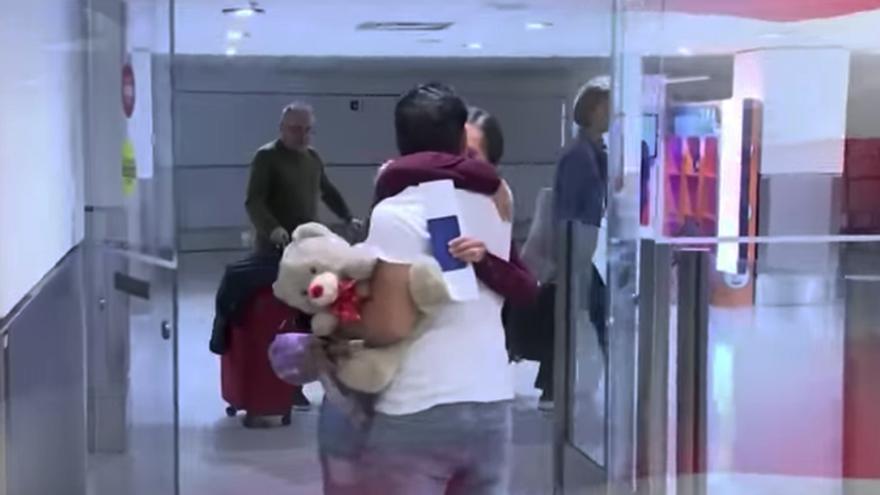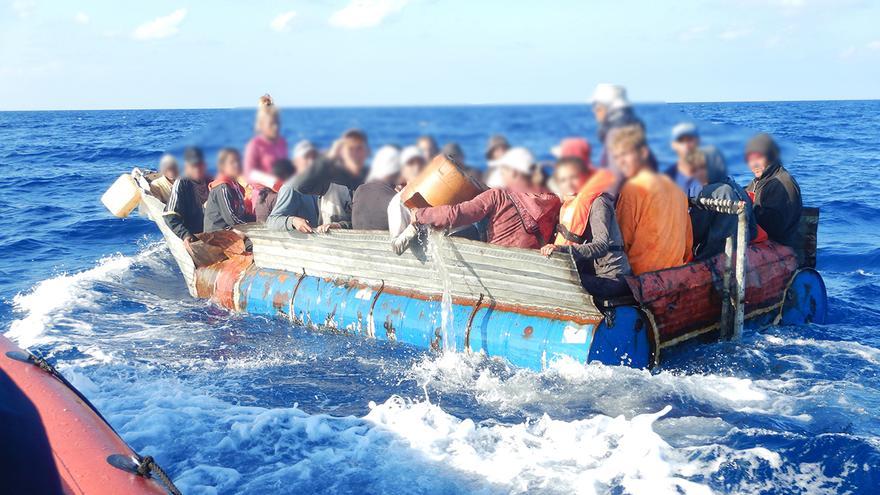
![]() 14ymedio, Havana, 28 April 2023 — A total of 15,000 Cubans arrived in the United States as of March through the humanitarian parole program launched in January by Joe Biden’s government. In the first quarter, “18,000 Haitians, 7,500 Nicaraguans and 32,000 Venezuelans were admitted,” as reported at a press conference by the acting undersecretary of the Department of Homeland Security, Blas Nuñez-Neto.
14ymedio, Havana, 28 April 2023 — A total of 15,000 Cubans arrived in the United States as of March through the humanitarian parole program launched in January by Joe Biden’s government. In the first quarter, “18,000 Haitians, 7,500 Nicaraguans and 32,000 Venezuelans were admitted,” as reported at a press conference by the acting undersecretary of the Department of Homeland Security, Blas Nuñez-Neto.
To date, more than 55,000 Cubans, Nicaraguans and Haitians have received authorization to travel to the United States under this program, in addition to 40,000 Venezuelans.
The US official recalled that “the parole processes based on sponsors for Cuba, Haiti, Nicaragua and Venezuela that were announced in January will remain in force after May 11,” when the current Title 42 is suspended and the old article 8 is reactivated to deport people who arrive in an irregular status to their countries.

Nuñez-Neto insisted that the US border is not open and that from May 11 the repatriation of migrants who enter the United States will be “accelerating.” Persons expelled “will not be able to enter the country for five years, in addition to being prosecuted.”
Among the measures to establish order in legal migration and reduce illegal migration, Nuñez-Neto specified that the appointments available in the CBP One application will be increased.
At the same conference, the Deputy Undersecretary of State, Marta Youth, of the Office of Population, Refugees and Migration of the State Department, reiterated the creation of centers to manage migrant applications in Colombia and Guatemala, where applicants will be able to access some legal migration routes, such as obtaining refugee status, family reunification programs and work permits.
In these centers, now-existing facilities of the UN Refugee Agency and the International Organization for Migration, evaluated migrants will be able to benefit from refugee programs and humanitarian permits for families and to work in the United States. Spain and Canada have also agreed to receive people who are sent from these facilities.
On Thursday, the Secretary of State, Antony Blinken, and the Secretary of National Security, Alejandro Mayorkas, announced the extension of the parole for family reunification to nationals of El Salvador, Honduras, Guatemala and Colombia.

This Friday, the U.S. Coast Guard returned 82 migrants from the Island on the ship Paul Clark. Captain Ben Golightly, of District Seven, recalled that Blinken made it known that Cubans and Haitians who are detained on the high seas after April 27 will not have the right to humanitarian parole and will be returned to their country of origin.
The agency stressed the return by sea or air for Cubans. This week the deportations of migrants from the Island resumed on a flight from Miami. The number of weekly flights will double or triple for some countries,” according to a statement.
Last Sunday, the US Coast Guard transferred 20 Cubans to the Bahamas on the ship Skipjack, who had been rescued on Tuesday. The agency reported that since October of last year, the attempts of 6,449 rafters to reach Florida has been thwarted.
Translated by Regina Anavy
____________
COLLABORATE WITH OUR WORK: The 14ymedio team is committed to practicing serious journalism that reflects Cuba’s reality in all its depth. Thank you for joining us on this long journey. We invite you to continue supporting us by becoming a member of 14ymedio now. Together we can continue transforming journalism in Cuba.
